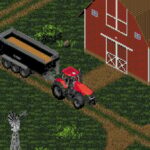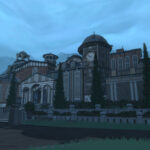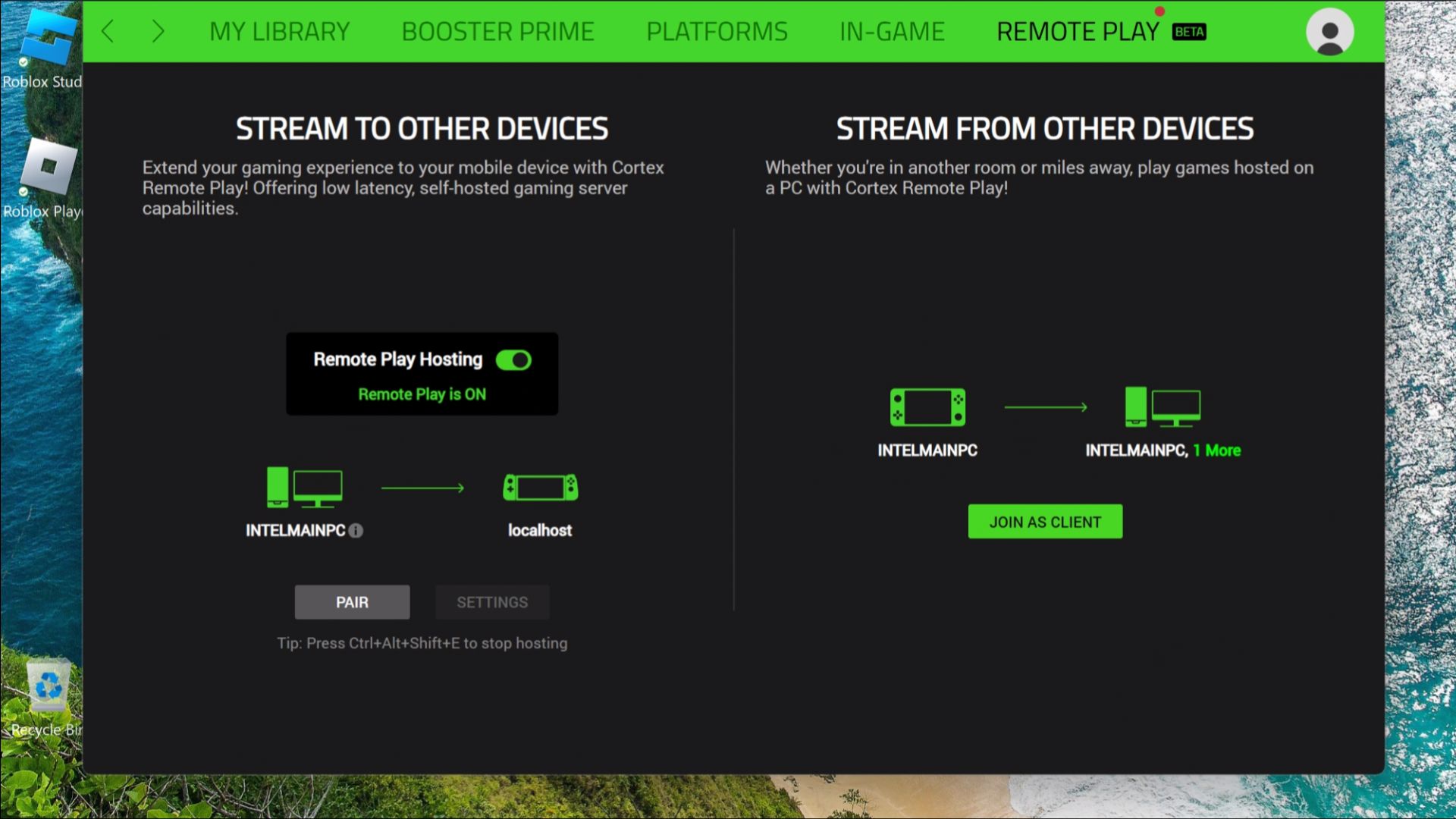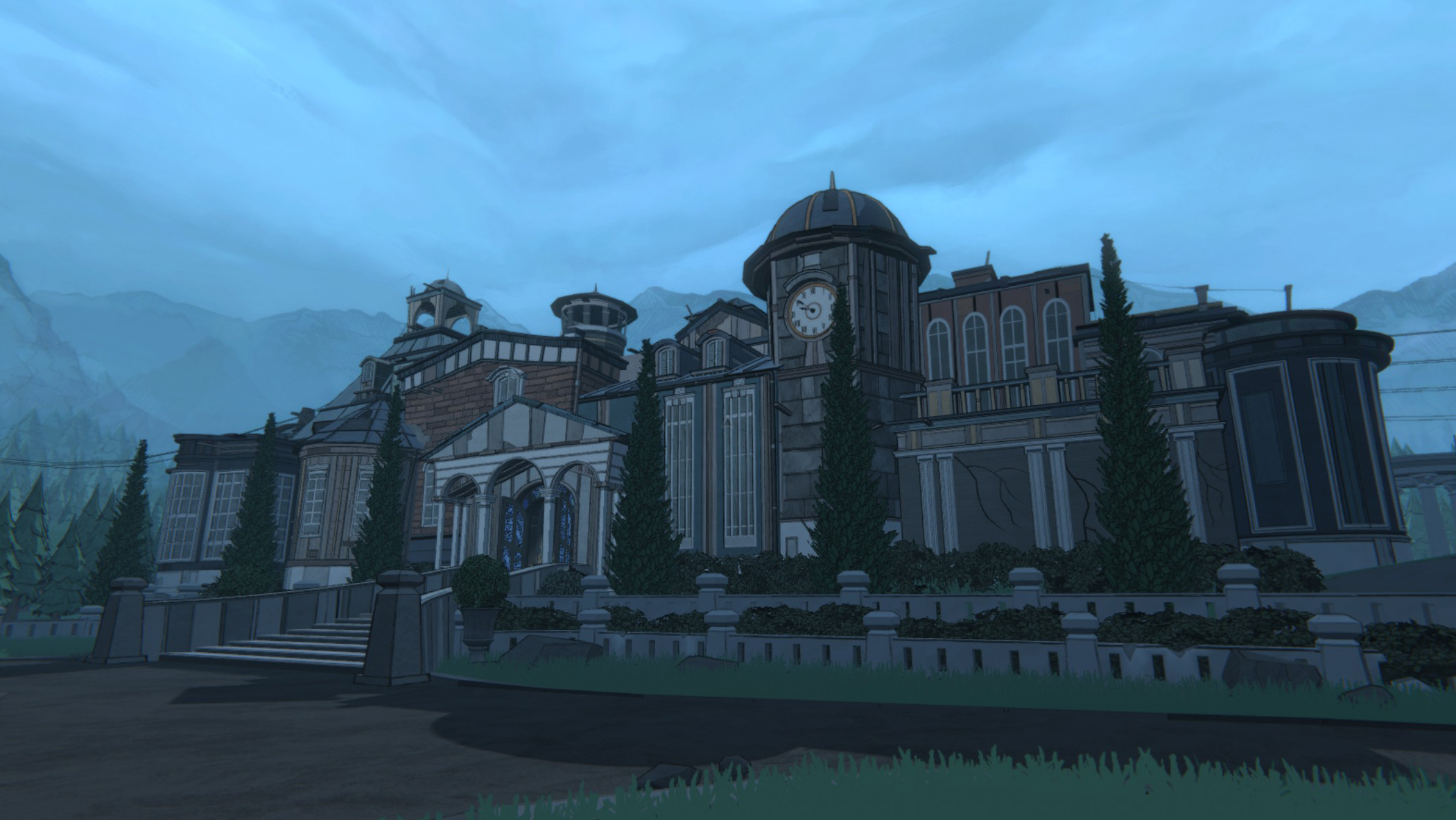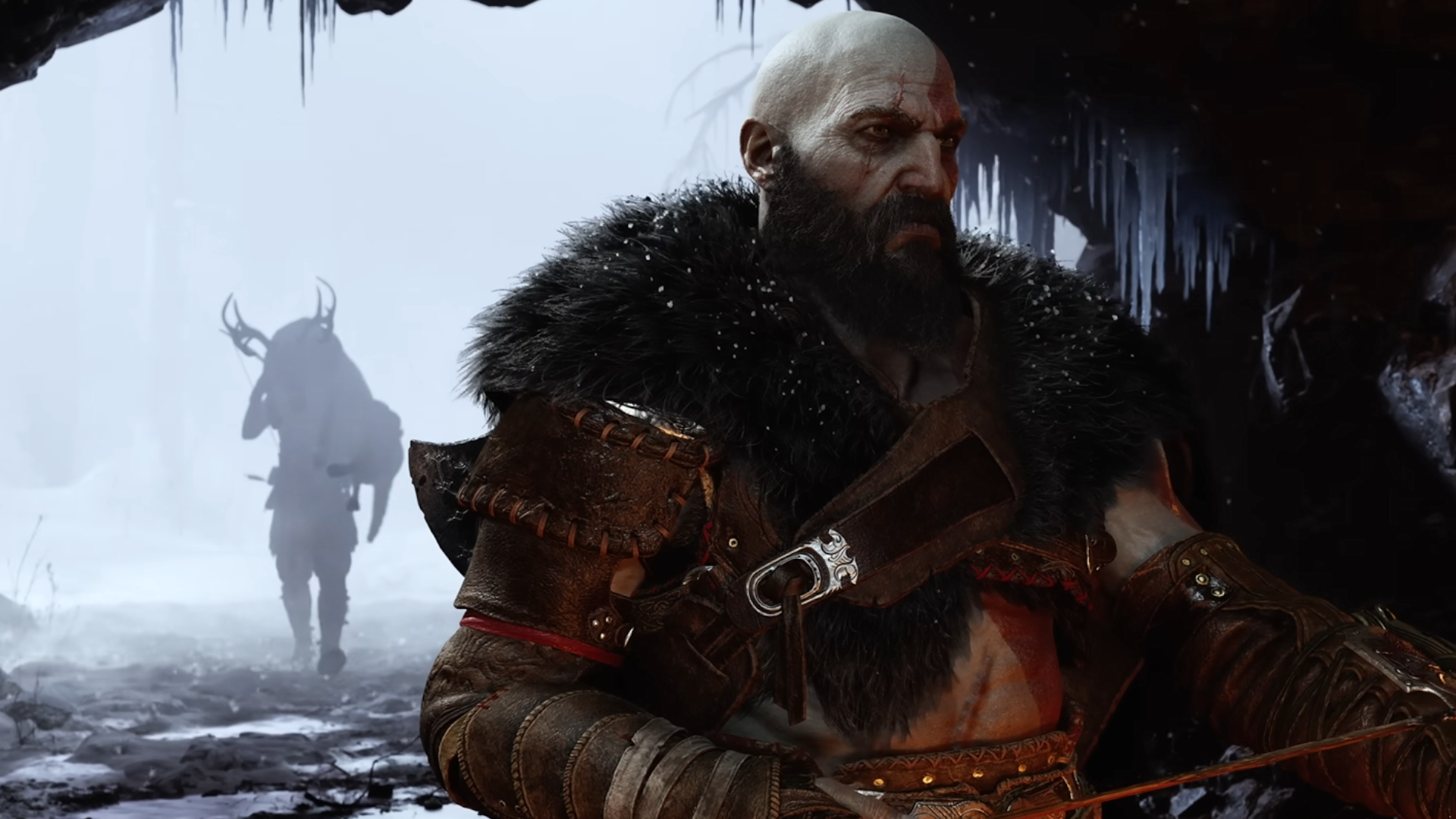I walked through the front doors of Obsidian Entertainment with a singleminded mission: find a gun in fantasy RPG Avowed as quickly as possible.
So much of Avowed—which Obsidian has taken pains to point out is not a sweeping open world game like Skyrim—looks deeply traditional. Cozy. Unsurprising. But then there are the guns. Where else might it diverge from the stock fantasy playbook?
“The things that set Avowed, and really all the [Pillars of Eternity] games we’ve made in the world of Eora apart in the fantasy RPG genre, are that blend of a very grounded political story and a very philosophical and mysterious metaphysical story,” says director Carrie Patel. “You almost always have a player character with one foot in the world of the gods and souls and these strange, mysterious things, and another foot in the conflict between nations. That enables us to tell stories where the characters feel very grounded and relatable, but also still have some color, and the quests you’re encountering can mix those feelings of groundedness but also scale and epicness and wonder.”
Patel has had the tricky task of reigning in expectations for Avowed to approximately The Outer Worlds-sized while also making a convincing case that it still has vast branching roleplaying (where Obsidian historically excels) and action-heavy combat (where Obsidian historically doesn’t). If the dev team is feeling any pressure for Avowed to be a smash hit after five years in development, though—and Microsoft’s last big RPG, Starfield, not exactly matching up to Baldur’s Gate 3—there’s no sign of it.
Obsidian seems eager to give as many developers as possible a chance to dish on their contributions, those million unsung details that go into a game. Ten developers take me through art and combat and writing and quest design; everyone namedrops someone else’s great work. During breaks between interviews the chatter quickly goes off the rails. At one point Patel pulls out her phone and plays a remix of Busta Rhymes rapping over the Wii Shop Channel music. (I don’t remember how we got there.) I know I shouldn’t read too much into Busta Rhymes, yet it was an oddly encouraging moment: Vibes can only prove so much, but seeing a team abuzz with kindred energy is at least a strong signal that they work very well together.
As I played Avowed I kept hunting for the one special, amazing thing that would wow me. And, well, I didn’t find it. But after a few hours, I started to think maybe I didn’t need to.
Grimoired and dangerous
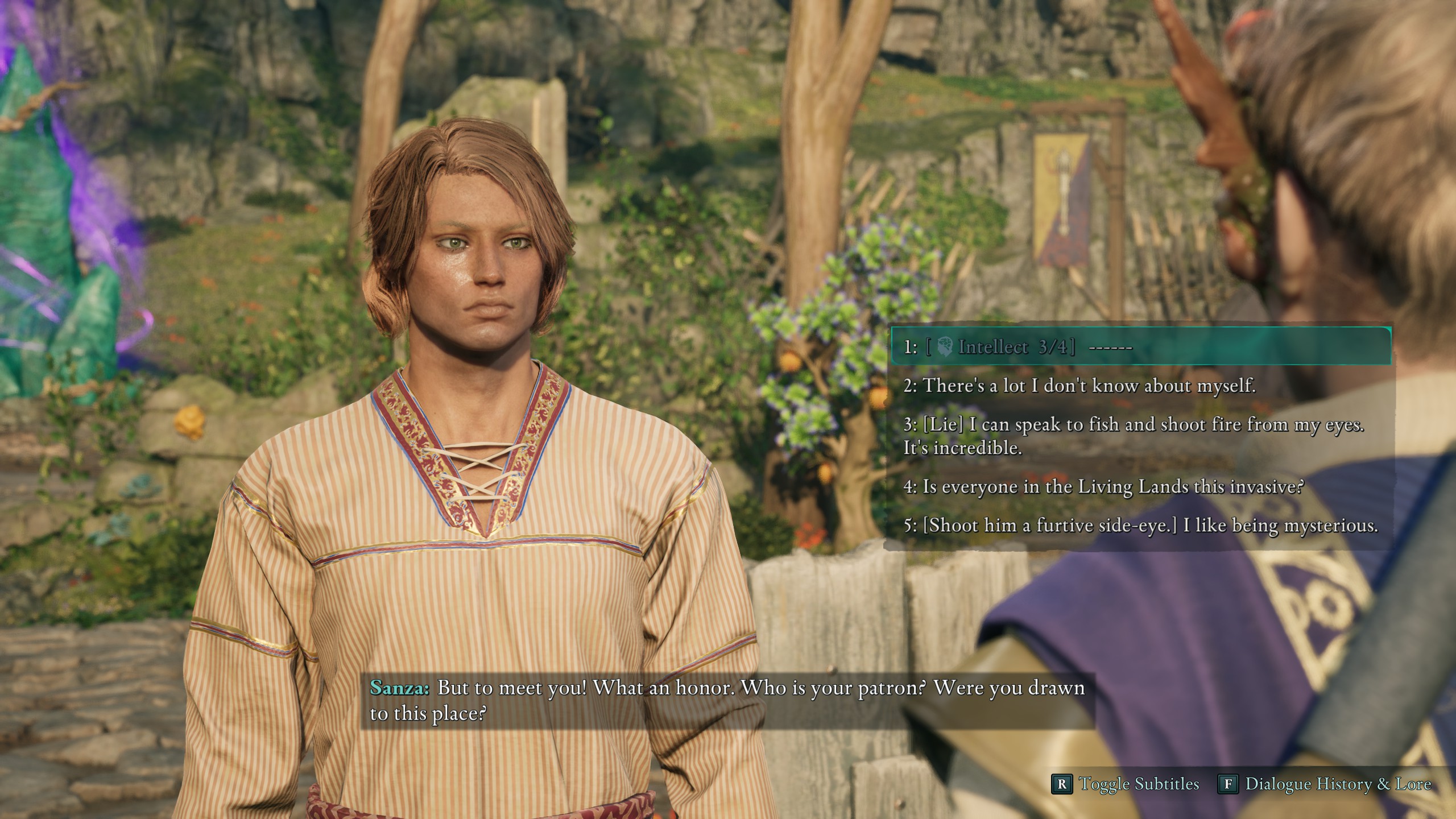
We want to allow you to look up, see a lighthouse and wonder ‘hmm, I wonder if I can climb up there.’ And you can.
Berto Ritger
As soon as I got clear of Avowed’s tutorial I found the first merchant in the sunny port town of Claviger’s Landing and bought myself a cheap pistol. Then I equipped a grimoire in my off hand, which let me cast clutch elemental spells without any actual proficiency with magic. The flexibility of Avowed’s classless system is exciting even at the start—I can’t think of many RPGs I’ve played that mix magic and melee so freely.
Combat vaguely resembles Skyrim on the surface, but in the hands it feels much different, with a snappy dodge and an action RPG-style stun meter on enemies that lets you fire off a special attack when it maxes out. It feels outright gamey in a way I didn’t expect, with charge attacks, bursts of hitstop and arcadey pings! on critical hits.
“The challenge in RPGs is we want you to feel this progression throughout the game, but it can’t start in a way that just feels crappy,” says combat designer Max Matzenbacher, who’s spent a great deal of time hand-tuning the feel of Avowed’s weapons. “We play with the timing of the animations, and we’ve spent a lot of time having the animation state change based on the type of hit. If it’s a normal hit we’re trying to get that connection to feel right; if it’s a hit where you’re fighting an enemy that’s too strong for you, we kinda try to make it feel like you’re hitting an immobile post. Camera shake in first-person makes the game too disorienting, so our UI team has gotten the HUD to shake. Directional blood and VFX, all those feedback cues—I could geek out for hours.”
At level one Avowed’s combat weighs in as a versatile welterweight—not quite manic Japanese-style character action, but not as weighty as a melee-focused brawler like Warhammer: Vermintide 2. I can’t tell if it’ll excel in either weight class as I level up and gain abilities, but I think mid- and late-game Avowed is going to be a whole different fighter than what Obsidian has shown in its trailers. Even early on it feels better than it looks in video, particularly when I’m ice-blasting charging enemies with the grimoire in my left hand and then popping off a headshot with the pistol in my right.
After fashioning myself as some sort of wizard pirate I took a tour through the nearby seaside shantytown before setting off in search of a missing ambassador I needed to have a chat with—then wandered back off the critical path and stumbled into a pair of grave robbers outside of town. I convinced the big one, Tiny, to run home. Unlike his partner, he agreed that was preferable to dying.
I spent about half my playtime trying Avowed’s third-person camera, and it works with only the occasional floatiness or awkward animation. Patel says the third-person camera was always planned, but it’s listed as an accessibility option for those who struggle with first-person, the mode the game was clearly designed for. There’s a hint of Deus Ex-style immersive sim DNA to the environments, which are brimming with climbable ledges and rooftop rewards for exploration. Where Skyrim’s jump button existed exclusively for stuttering up barren mountainsides, Avowed’s is constantly useful and enriches the compact spaces Obsidian has designed.
I do love the mini-accomplishment of clambering my way onto a rooftop, but more importantly there’s shit to do when you make your way up there; when I returned to that shantytown for a more thorough look, I barged into a second-storey door and discovered a quest awaiting with the nervous hideaways inside.
“In a top-down game we know what you’re going to see,” says Berto Ritger, who serves as a region director on Avowed, helping shape its environments. “In this world you can look around, see the sky, see the moon for the first time in Eora. And you aren’t always going to do what the devs necessarily want you to do. We want to lean into that and allow you to look up, see a lighthouse and wonder ‘hmm, I wonder if I can climb up there.’ And you can. We want to encourage that exploration.”
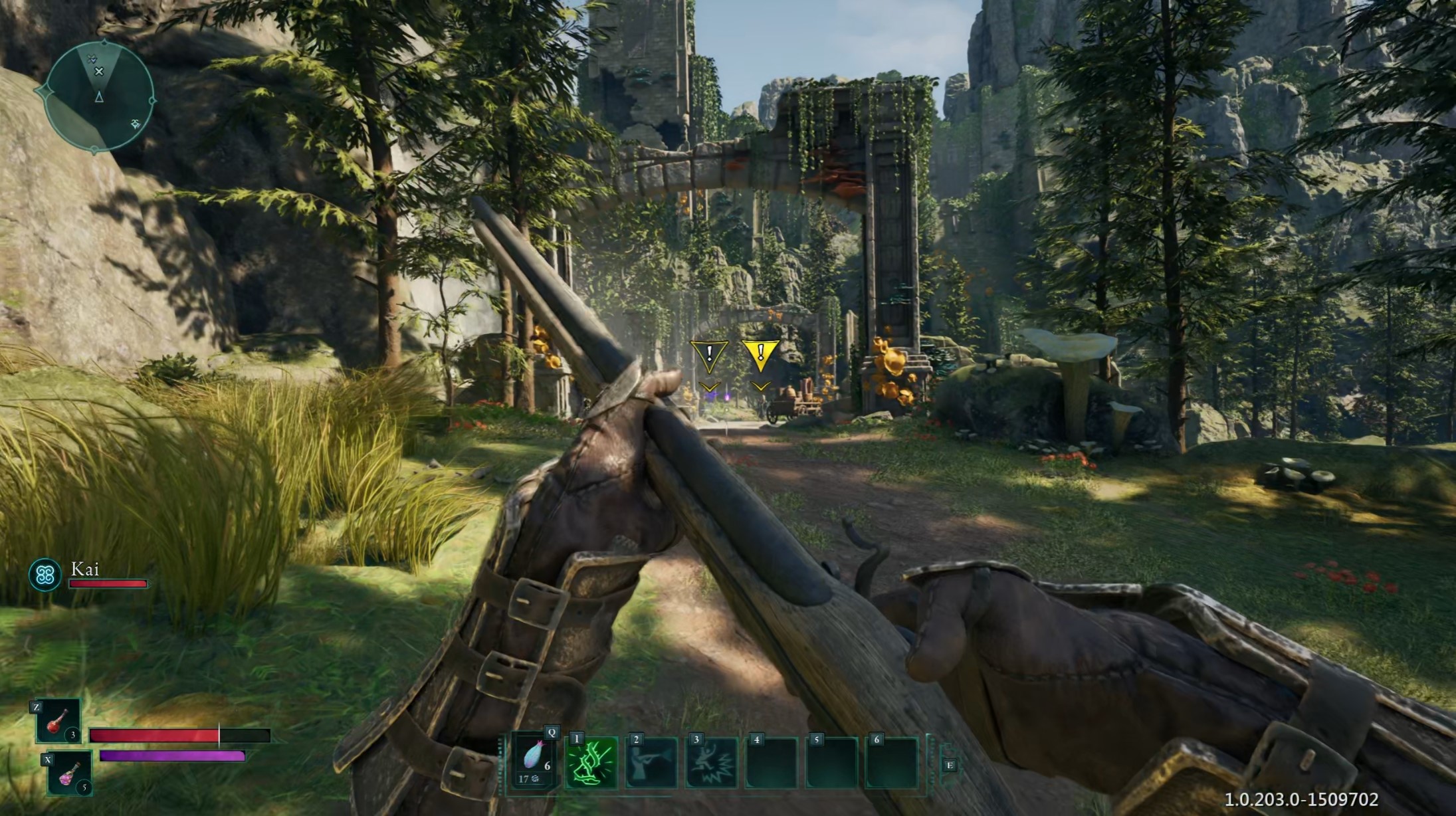
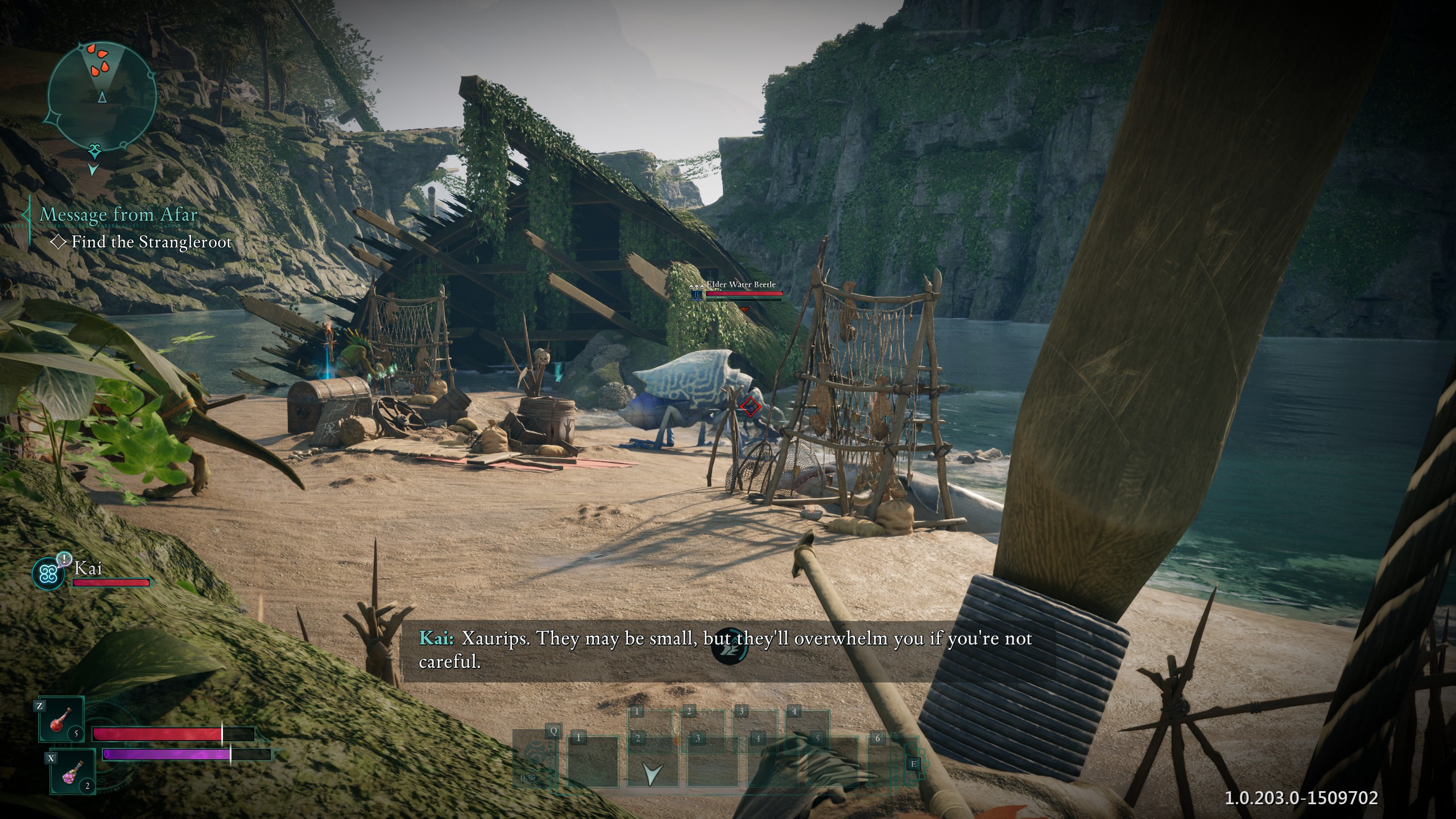
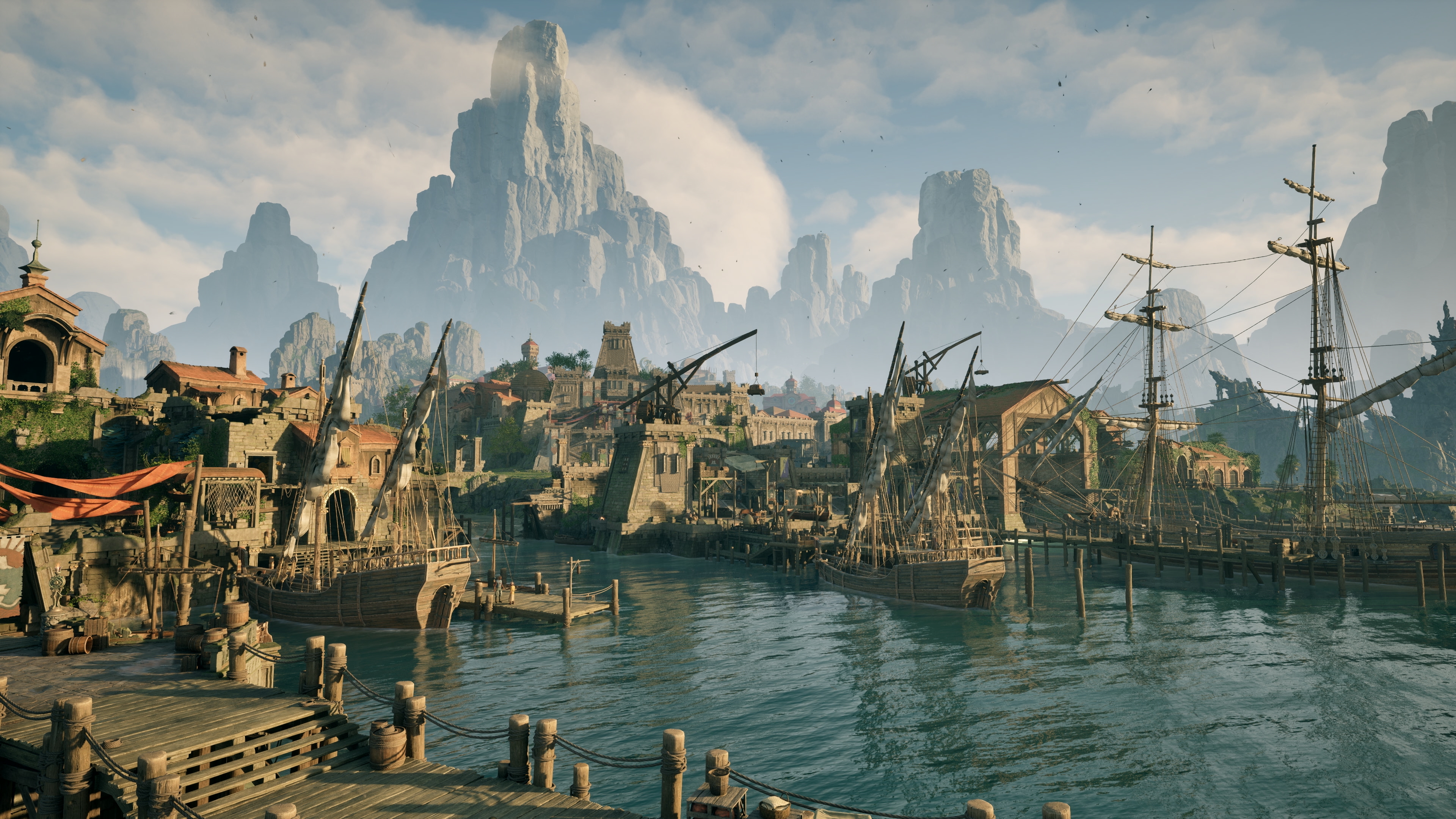
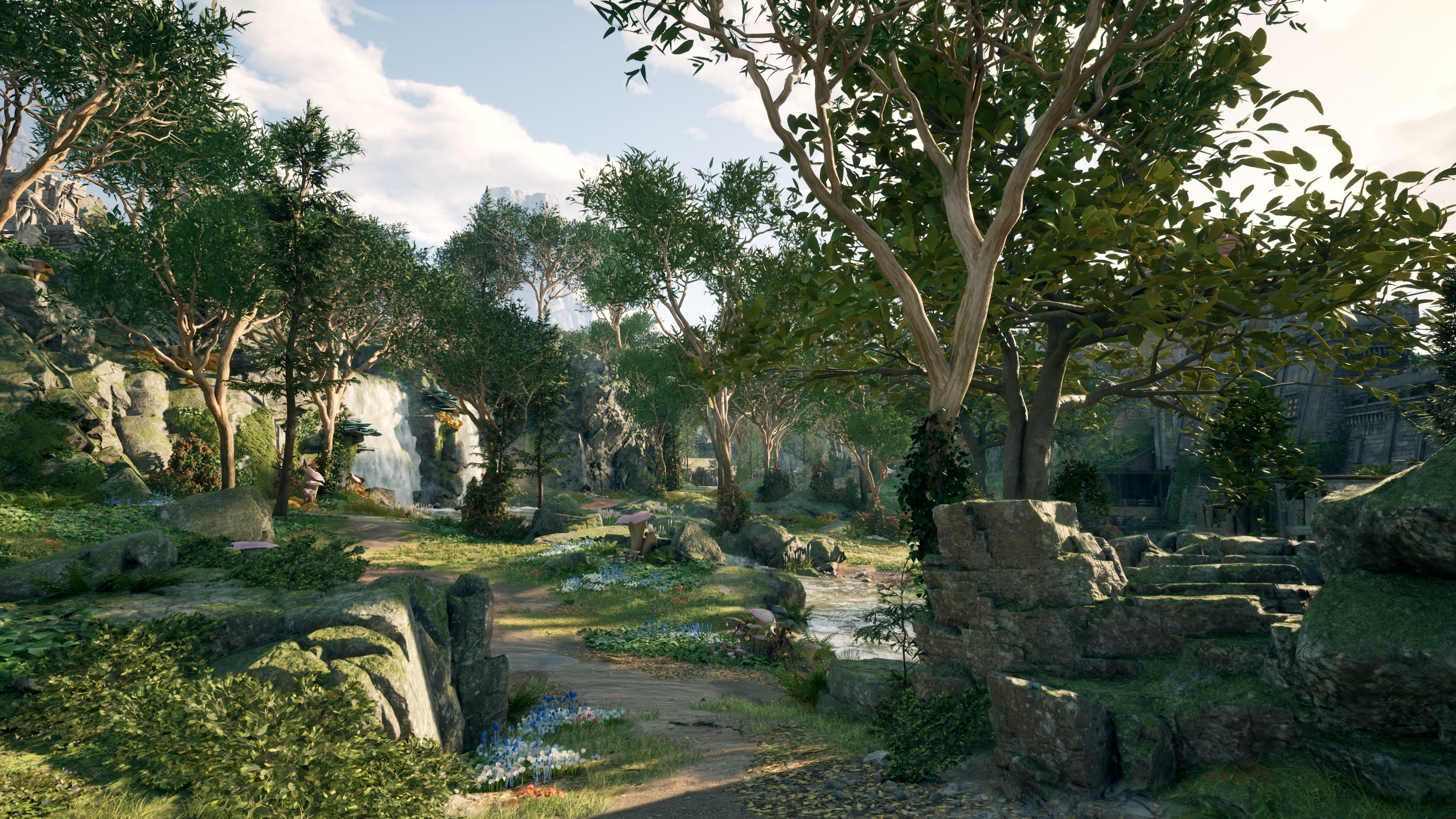
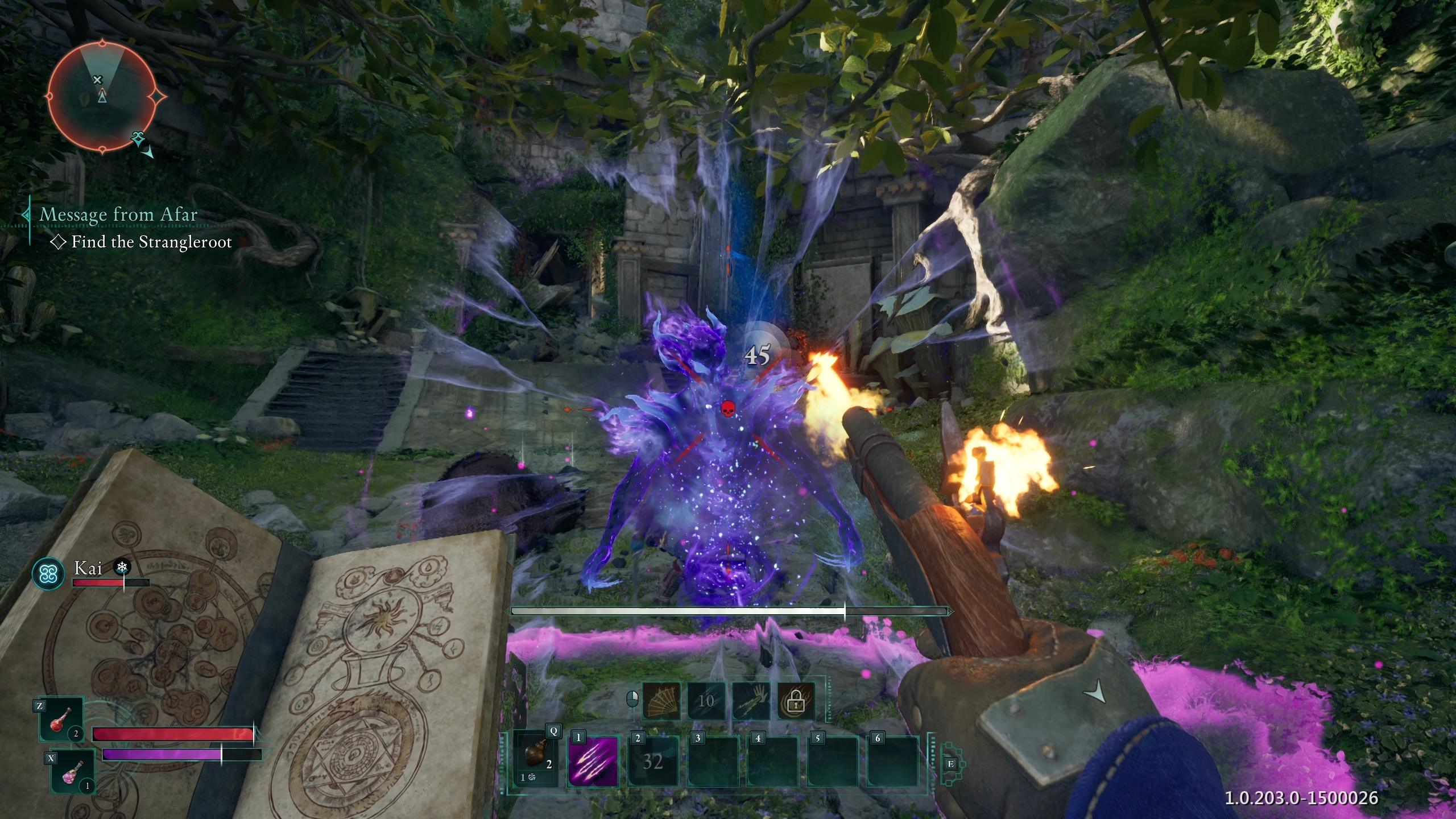
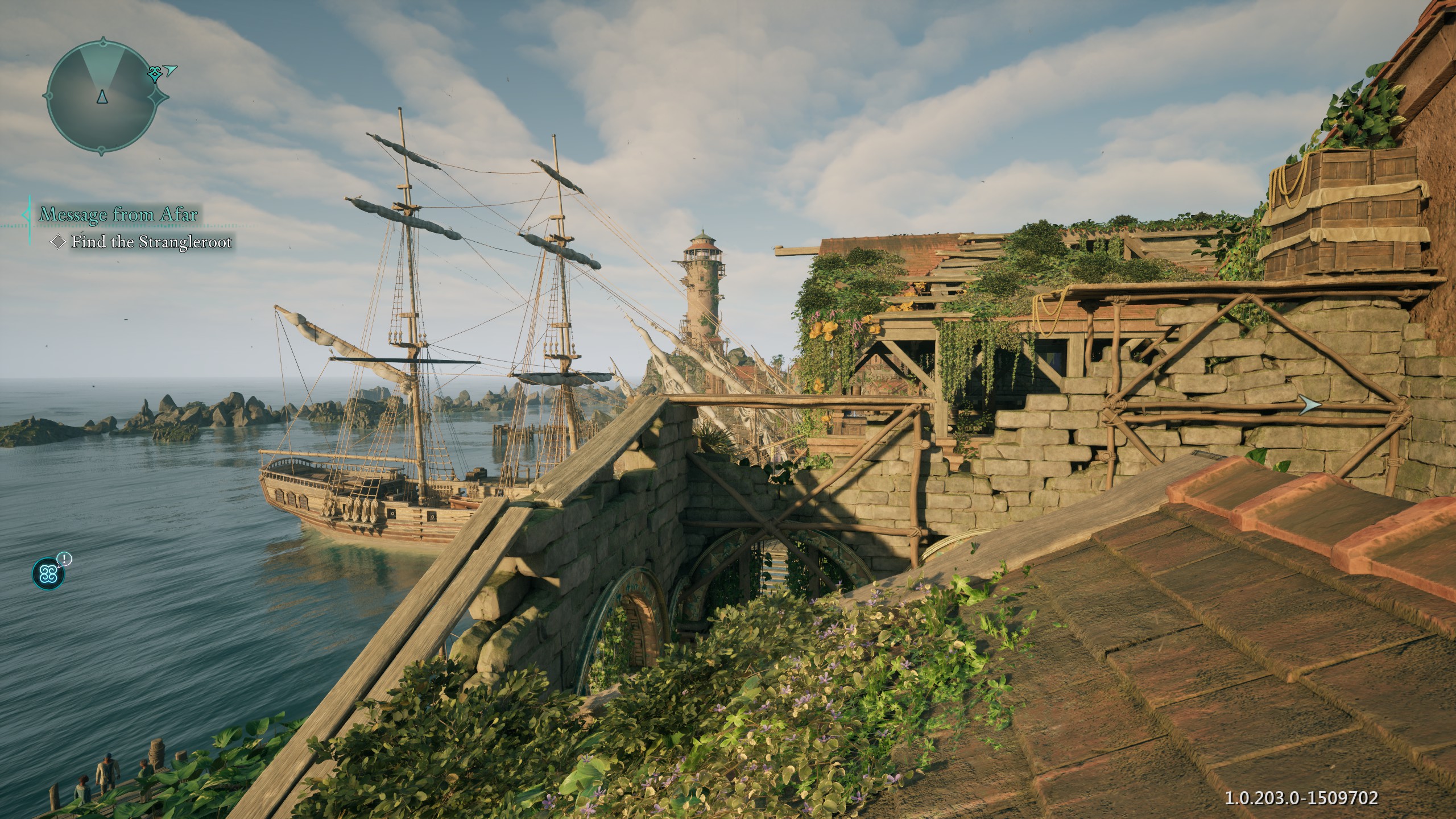
Avowed by default is awash in tutorials, map icons, and quest markers, but thankfully offers granular controls over everything UI. When I turned off the arrows pointing me towards some talismans I needed to find in seagull nests scattered around the shantytown, I started spotting the telltale signs of bird shit speckling the walls and crates below them. Some of those delicate touches were even a surprise to Carrie Patel.
“One of our area designers, Bre Seale, did a pass a couple months ago to refine all the pickables you can find in the world, to ensure there are sensible rules based on how they’re placed,” she says. “I put a post-it note [over my minimap] and her placement was so strong and consistent I was able to find a lot of stuff. I started to recognize, oh, Soulsponge is placed near corpses or places where people have died, that’s so cool. When you start to see this underlying logic to the world—and when as developers you can trust the players to engage with you, and as players you can exercise some of your own curiosity and pattern recognition—I think it’s a much more rewarding experience.”
Our story begins
I started having way more fun moment-to-moment in Avowed as I started really eyeing my surroundings, and was rewarded with item chests and other goodies everywhere. The exploration puts me in the immersive sim mindset, and there are a few interactable objects sensitive to elements like fire and lightning. At one point I wondered how to reach a mushroom growing in a crevasse over a pool, then spied a blue berry growing above it. I pulled out my bow and fired, and when the berry plopped into the water it created an icy platform I could jump on.
That right there is my shit, but in Avowed these moments are hand-placed bits of garnish rather than protein. In many ways the world feels disappointingly artificial: you can’t pick up and move objects, there’s no dynamic weather or time of day, the townsfolk are largely static and have little or nothing to say. These are reasonable limitations in an RPG focused on dialogue and combat, but I wish Avowed had the scope to fully explore the possibilities of a richer simulation.
I liked but didn’t love every piece of Avowed I saw. No writing sucked me in the way the voices in my head did in Disco Elysium; no quest stunned me like the Bloody Baron in The Witcher 3; no moment of environmental exploration struck me with the kind of staggering open-ended possibilities I found in Baldur’s Gate 3. Even so, I did start to really appreciate how harmoniously the little pieces fit together. Maybe beyond its opening area there will be a moment Avowed does that one big thing that fully locks me into its vision. But maybe the unusually freeform combat and options that let you fully dial in how much guidance you want for exploration built atop Obsidian’s trusty core of meaningful roleplaying will be just as good. Even if, like my gun-wielding, magic-throwing character, there’s no default class for it to fit into.





